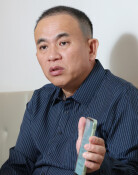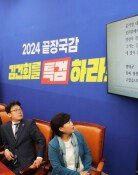When Korea Looks Back on the Past, Other Countries Look Ahead into the Future
When Korea Looks Back on the Past, Other Countries Look Ahead into the Future
Posted August. 23, 2005 03:28,
This meeting is the largest event in futurology in which some 1,200 participants from approximately 80 countries around the world are forecasting how future societies will be like.
As a country, the U.S. is the most proactive in predicting the future.
The Central Intelligence Agency (CIA) publicized the 2010 report in 1997. It also released the 2015 report in late 2003 and the 2020 report late last year. The CIAs future forecast report is regarded as world-class.
The U.S. state governments as well as the federal government have put in place standing agencies which project the future.
In this meeting, the Long-term Policy Research Center in the state of Kentucky has unveiled its prediction of technological advancement and environmental issues on a state level, and the role and budget of the state government. The center publishes a report biannually, employing state-of-the-art future estimation technology, such as surveys, various statistical analysis, scenario analysis, case studies, and forums.
The U.K. and Australia also have released reports on the future on a national level. Australia has predicted up to 2020, while the U.K. to 2050. In Germany, BASF, a company in the private sector, announced a business plan based on a precise forecast to 2015.
By contrast, the estimation report on technological advance into 2030 by the Ministry of Science and Technology is virtually Koreas only report on the future on a national level. There is no report about various social changes and strategies based on a long-term perspective.
Park Young-sook, director of Public Diplomacy of the Australian Embassy to Korea, said after participating in the World Future Society Meetings held in Chicago, While the governments of advanced countries are taking the lead in forecasting the future and coming up with strategies, Korea seems to be preoccupied with the past. She also pointed out, It is a mission of governments to predict the future so that the public can prepare for future changes.
Furthermore, it is also pointed out as a problem that there is no prediction on how Korean society will change after reunification.
Park Byeong-won, a researcher of Korea Institute of Science & Technology Evaluation and Planning, expressed his concern, Although reunification is the most important and influential event that might occur in Korean society in the future, there is no one who can give answers on possible changes in post-reunification society, adding, Chaos is highly likely to occur if people face reunification without preparations.
Suk-Min Hong smhong@donga.com
Headline News
- Half of working seniors earn less than 1 million won per month
- S. Korea prepares to monitor N. Korean military activities amid POW concerns
- Shinsegae Group officially splits department stores and E-Mart affiliates
- Starbucks issues ‘come to the office 3 times a week or be fired’ notice
- Ha Hyeong-joo chosen as 2024 Sports Hero of Korea







